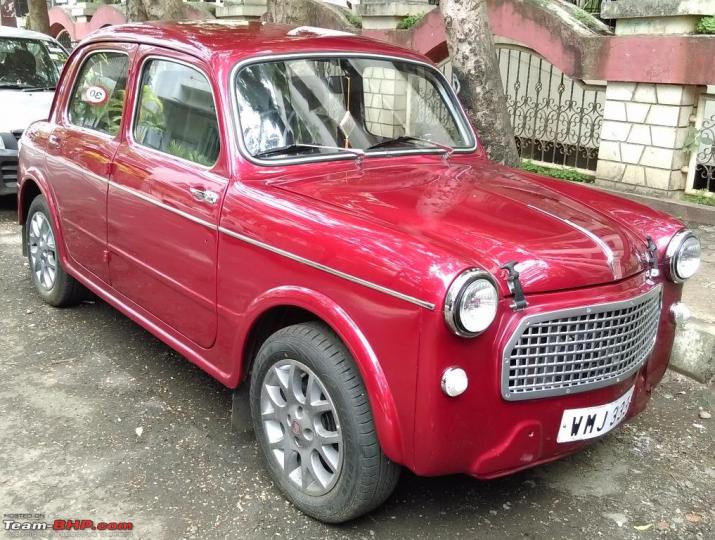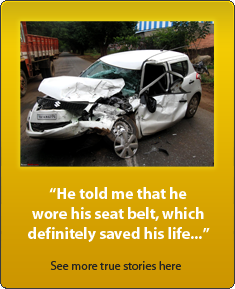News
Restoring a car to original vs upgrading to modern standards
So what does restoration mean to you? Preserving an old beauty to closely mimic its pristine beauty (and that might mean no swapping out drums for discs etc), or bringing it up to modern standards as much as you could? Or somewhere in between?
BHPian Sudarshan42 recently shared this with other enthusiasts.
Came across a clip featuring Jay Leno and Jerry Seinfeld, where they talk about Duesenbergs and classic Porsche 356s. One topic that caught my attention was their emphasis and fanaticism towards keeping old cars as close to original as possible. In a way, this meant only fix what you can, improve what needs to be improved to make it run, and that's that.
I guess it goes against some of the new-age wisdom that we're fed about cars being repainted, redone completely from the ground-up till they're essentially not the same car anymore (like the Ship of Theseus parable). Not quite what companies like Singer and Eagle do to Porsches and E-Types necessarily, but still fairly redone.
So what does restoration mean to you? Preserving an old beauty to closely mimic its pristine beauty (and that might mean no swapping out drums for discs etc), or bringing it up to modern standards as much as you could? Or somewhere in between?
Here's what BHPian Sanidhya mukund had to say on the matter:
For me, as long as the car becomes better than it was (both in terms of condition as well as usability), I would call it restoration. For example, if there is a broken down old VW Beetle/Mini Cooper/Fiat 500 in which it is not feasible to restore the engine, I wouldn't mind if a Maruti 800 engine is fitted into it, if it means that the car will become road worthy again. I am also looking forward to EV retro-fitment kits for older cars as they would mean that one can enjoy old cars without fouling with upcoming laws and regulations.
Resto-modding is a practice that a lot of people do, especially with iconic cars like Ford Mustangs and Chevy Camaros. Here, they take an old car, say from the 1960s and plonk in a modern engine and drivetrain from the same car model of the current year. Even on our own forum, there are members who have restored their old cars with modern features/engines. The best examples are Ariesonu's Fiat and GTO's Jeep.
On the other hand, there are a few purists, who would want an old car to have every single screw exactly the same as the time it left the factory. They believe that a car is only able to retain it's character if it stays the same as factory spec. I don't own any cars that can be called vintage or classic, but I do own a couple of old cars. I am very particular about their looks; I would like to keep the original trims, badges, logos and lights. I wouldn't change my amber/orange indicators to the clear lenses of the later models. However, I do not really care about originality if the modifications can help make the car more reliable and usable. If I get an affordable and reliable EV fitment kit, I wouldn't think twice before throwing away the diesel/petrol engine.
Here's what BHPian VKumar had to say on the matter:
"Anything that doesn't make it as good as new, is just a repair - only the magnitude varies"
Restoration == Back to how it was on day 1
Mechanically you can't get the metal back to how it was on day 1, but at least you can get it close to it.
I am on the lenient side when it comes to repairs, but strict when it comes to restoration. I have seen guys restore the vehicles used by their father, restore the motorcycles etc. A good restoration costs more or less near to the price of a new one, no doubt on that. A lot of labour, hard work, and hit and trial goes into a proper full fledged restoration. If the person doing it has some real eye for detail.
If a proper restoration costs that much, then why not buy new? Simply because you restore the stuff you have an emotional connect with, else everything is replaceable - including people, these days!
I would like to cite one such example, a known guy from Meerut has restored the old Gypsy of his grand father for his 50th wedding anniversary. It took around 4 months and a lot of effort and money. But the outcome was worth it, it was done with such a meticulous attention to detail, that the car was hard to fault. Even inside the hood, you couldn't find a place where the dust had accumulated. But then, other than the mechanicals and chassis, everything else was new.
Here's what BHPian gkveda had to say on the matter:
I would like to first answer, what is NOT restoration. Then, will try to shape the concept of restoration. This is purely my view.
First, restoration is NOT a BUSINESS of making money by bringing back a junk of metal onto road and make it run. Its the passion of bringing back the beauty to the legend that existed once upon a time.
Secondly, Restoration is NOT a process of preparing 2 min noodles by bringing 2 min Maggie noodles from a shop through a fast food culture. Rather, it's preparation of complex sandwich (the sweet is called Sohan papdi) with multi grained layers which takes at least 4 days to prepare (the sweet) OR preparation of South Indian Masala Dosa can be another anology. To get red coloured, crispy and tasty masala dosa to the table, it takes minimum of 3-4 days and many a times, to get right recipe itself will be a big challenge. It takes time. Time may be few months to few years or even decades.
Thirdly, Restoration is NOT done by brain. Its done by heart.
Lastly, Restoration success is NOT knowledge based. Its knowledge plus experience plus attitude based. You can not assure a quality and successful restoration just because, the restorer is knowledgeable. He needs to have knowledge, experience and NEVER GIVE UP ATTITUDE for a successful restoration.
Here's what BHPian Jeroen had to say on the matter:
Restoring by definition means bringing something back to its original format.
I am very much about restoring rather than modifying. I like to keep my classic cars as close to the original as possible.
Actually very few classic cars are. If anything, most classic cars on the road run on modern tyres for starters, including mine. And safety is certainly an aspect where within reason, I might opt for a non-original solution. Same for brake pads. If anything, it is impossible to buy asbestos brake pads these days. Same for insulation on the exhaust.
So very very few classic cars are fully original, even the ones that claim to be so. In fact, most Concours d’elegance rules allow for some very minor changes, due to for instance current legislation. You can’t show up with asbestos brake pads period.
Part of fiddling with my classic cars is being on the lookout of the correct parts, finding them, or making them yourself if they have become unavailable in the market. But always as close as you can get to the original.
I once spend an extraordinary amount on time finding a particular sticker on the air filter of my Mercedes W123. Nobody had it, most people did not even know what this sticker was about. Turned out it was only produced for about 3-4 months to warn MB technician on a different torque value for the spark plugs on the then new M102 engine.
My origianl sticker was torn. By looking at endless photographs of W123 on the internet, I found one that still had the sticker. I visited that garage and was allowed to take photographs. The sticker was a little damaged, but in a better shape then mine. A friend of mine who is a whizz with Photoshop managed to restore it to its original version, colour, shape, size etc. I subsequently found a place that made the photo into a sticker.
That is just a typical little job for any classic car enthusiast who wants to maintain originality to the best of his abilities (and within your financial means).
I replaced the centre muffler on the Mercedes a few years ago. A new original one is not easily available anymore. You might still find one or have one made. But such an exhaust would cost more than what I paid for the W223 in the first place. So a bit excessive, so I got a non-original aftermarket. At least nobody can tell and I have never seen a concours judge crawl under a car.
Restoring classic cars is akin to tearing up money. Only if you have a very rare or special car will the value be more than the money you pour into it. Doing the work yourself helps of course.
I am always interested in reading and talking to guys who work on cars. Whether they restore or modify or repair. Personally I don’t get a lot of these modifications, such as big exhaust, loud boombox in the boot. And why do the guys that own those modified cars always wear their basket ball caps back to front? But technically interesting, just not my thing. And I categorically refuse to wear my baseball hat or any hat for that matter back to front.
Check out BHPian comments for more insights and information.
- Tags:
- Indian
- Member Content
- Restoration

























